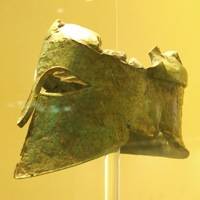Twenty Decisive Battles of the World by Lt. Col. Joseph B. Mitchell and Sir Edward Creasy
Interesting collection Sir Edward Creasy published a book called Fifteen Decisive Battles of the World: from Marathon to Waterloo in 1851. His original work was expanded in 1964 by Lt. Col. Mitchell in order to create Twenty Decisive Battles of the World . In some cases, Mitchell corrected factual errors in Creasy's original work that came to light since it was first written. The main criteria for picking these twenty battles was that the battle had to have a lasting impact on the war it was a part of and also have a lasting impact on history. For example, the Confederate victory at the battle of Chancellorsville in the American Civil War was not chosen despite the fact that it was brilliantly fought by Robert E. Lee. The Confederacy went on to lose the war and the victory at Chancellorsville may have prolonged the war by a few months at most. On the other hand, Mitchell picked the Vicksburg campaign as a battle that was decisive in the history of the world because it spell









